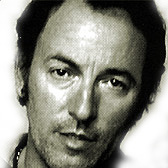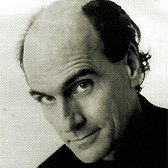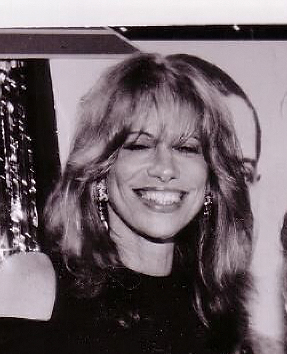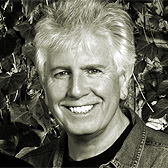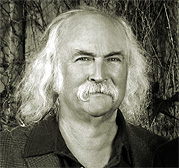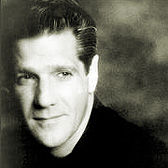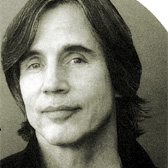
Celebrated for literate songwriting and as champion of contemporary causes.
Jackson Browne
InducteeWrote Eagles "Take It Easy" with Glenn Frey.
Over the course of more than three decades, Jackson Browne has written and performed some of the most literate and moving songs in popular music. With classic albums including Late For The Sky, The Pretender, Running On Empty, and For Everyman, and songs like "Doctor My Eyes," "Rock Me On The Water," and "Lives In The Balance," he has defined a genre of songwriting that is charged with honesty, emotion and personal politics.
Jackson's artistry was recognized with his 2004 induction into the Rock and Roll Hall of Fame. He also received in 2004 an honorary Doctorate of Music from Occidental College in Los Angeles, for "a remarkable musical career that has successfully combined an intensely personal artistry with a broader vision of social justice."
Browne's last album release was 2005's GRAMMY®-nominated Jackson Browne Solo Acoustic Vol. 1, presenting twelve songs culled from his acclaimed solo acoustic concerts performed worldwide.
Tracing the roots of Browne's career leads back to the mid-'60s and Los Angeles/Orange County folk clubs, where he played solo. Born in Germany to American parents, Jackson moved to Los Angeles at age 3, and, except for a short period living and working in New York City in the late 1960s, has always lived in Southern California.
His integral presence in the coffeehouse scene there ultimately led to his celebrated 1972 debut album, Jackson Browne. The now classic LP introduced ten original songs, including "Rock Me On The Water," and "Jamaica Say You Will," featuring David Crosby on harmony vocals. Crosby and Graham Nash sang on "Doctor My Eyes," the album's first single, which became a #8 hit on Billboard's pop singles chart.
Browne's 1973 follow-up, For Everyman, included "These Days," and "Take It Easy," co-written with Glenn Frey, which had been The Eagles' debut single and breakthrough hit the year before. 1974's Late For The Sky-cited by Rolling Stone that year as one of the '100 Best Albums,' and again in 1997 as one of the '200 Essential Rock Collection Albums,' and in 2003 as one of the '500 Greatest Albums Of All Time'-was Jackson's confessional masterpiece of lyrical introspection. The Pretender, following two years later, was a breakthrough album-Jackson's first to chart in the Billboard Top 10, peaking at #5. On the heels of that success came what stands as Jackson's top-selling album, 1977's seven-times platinum, life-on-the-road concept opus Running On Empty.
Browne's next project was the all-star series of concerts organized by Bonnie Raitt, Graham Nash, John Hall, and Jackson in 1979 to benefit MUSE (Musicians United for Safe Energy). In addition to serving on the MUSE Foundation Board, Jackson helped edit and compile the 1980 3-LP live album from those shows. No Nukes/The MUSE Concerts for a Non-Nuclear Future featured a line-up including Bruce Springsteen, The Doobie Brothers, Carly Simon, James Taylor, Ry Cooder, Chaka Khan, Peter Tosh, and Tom Petty, among many others. The album, which includes Jackson's "Before The Deluge," climbed to #23 on Billboard's pop chart, a considerable feat for a triple-disc collection.
Jackson's studio work continued with 1980's Hold Out, a #1 album, featuring the hits "Boulevard" and "That Girl Could Sing." In 1982, Browne scored a #7 hit with the single "Somebody's Baby," from the soundtrack for Fast Times at Ridgemont High.
1983’s Lawyers In Love also spawned several popular singles, including "Tender Is The Night" and "For A Rocker." In 1986, Jackson continued to develop his social focus with Lives In The Balance. This topical disc was included in Rolling Stone's 1986 'Best 100 Albums,' and again in their 1990 special issue of '100 Greatest Albums of the 1 980s.' 1989's World In Motion was a call to action even more explicitly political than its predecessor.
I'm Alive was a striking return to the personal and romantic subject matter that characterized Jackson's earlier work. Released in 1993, and widely considered a career highlight, the disc found Jackson revisiting matters of the heart and soul on tracks including "My Problem Is You" and "Sky Blue and Black." On 1996's Looking East, he addresses various aspects of personal growth and social struggles, and their interconnectedness in the world around him.
2002 marked the release of The Naked Ride Home, Jackson's first suite of all new songs since Looking East, and one of the most eclectic of his career, exploring the human condition with a grace and insight that became his trademarks.
Jackson Browne's overall body of work was celebrated in 2004 with the release of Elektra-Rhino's 2CD compilation The Very Best of Jackson Browne, featuring 32 songs selected from throughout his career. The one earlier compilation of Jackson's work is Elektra's 1997 single-disc overview The Next Voice You Hear: The Best of Jackson Browne.
In 2002, Jackson became the fourth recipient of the John Steinbeck Award, given to artists whose works best exemplify the environmental and social values that were essential to the great California-born author. Browne joins a group of honorees that now includes filmmaker John Sayles, playwrights Arthur Miller and Lanford Wilson, musician Bruce Springsteen, authors Tom Wolfe and Kurt Vonnegut, and Studs Terkel.
The search for truth and one's place in the world remain central to Jackson Browne's songs. "Everything in life is colored by your personality," Steinbeck once wrote, adding, "but as you mature you become more aware of outside things, less concerned about yourself." In that regard, Jackson has been an ever evolving and maturing creative voice, and a world citizen, for most of his life.


